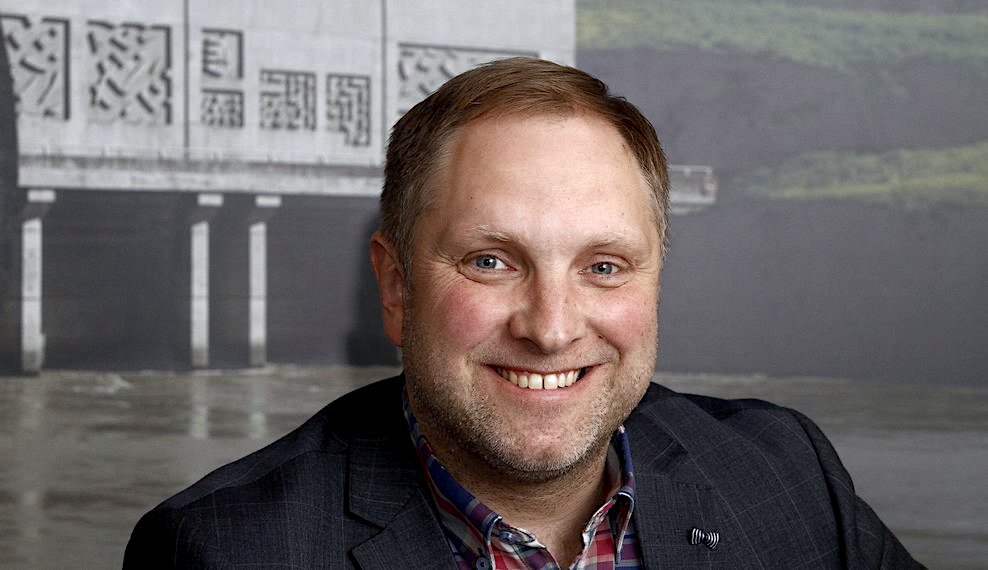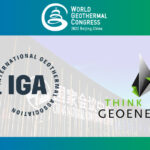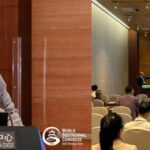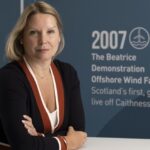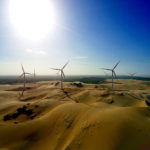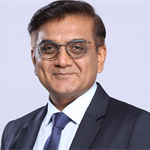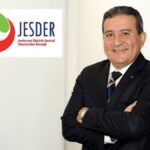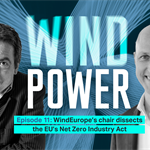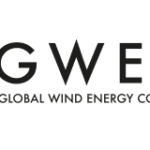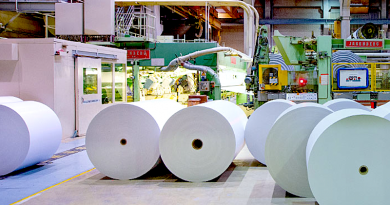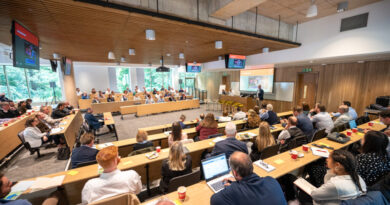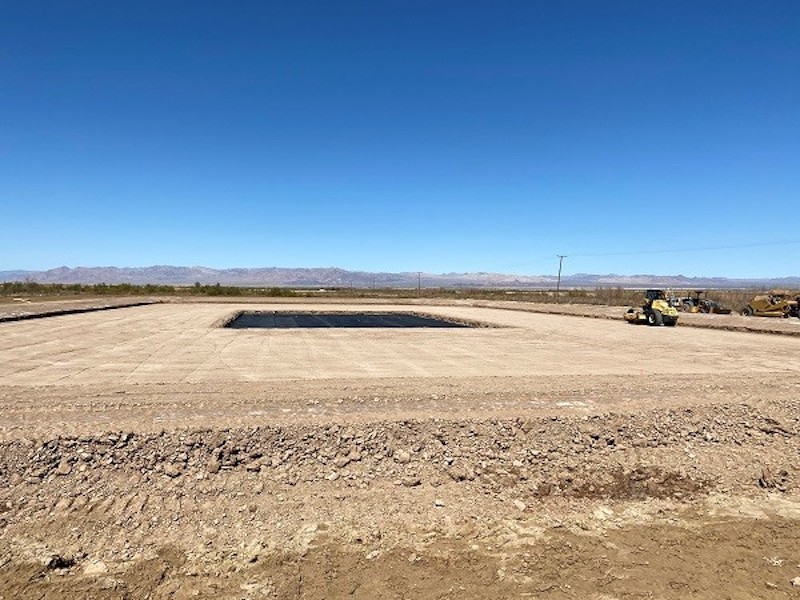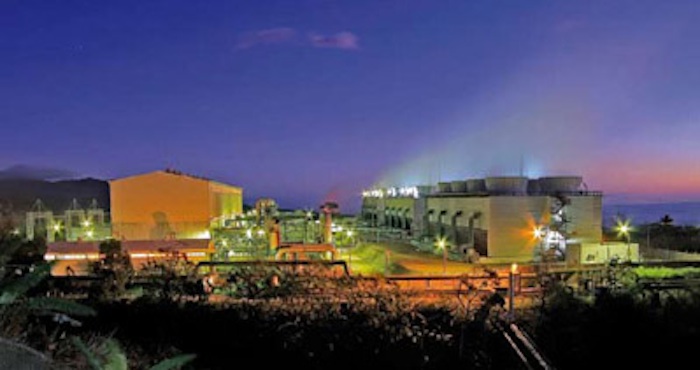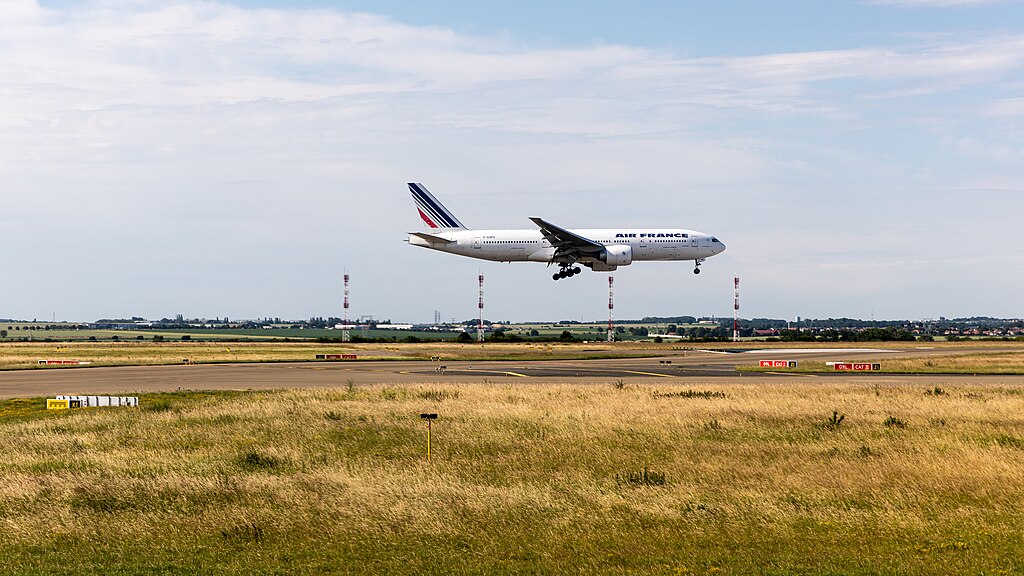Start of WGC 2020+1 – interview with Chair Bjarni Pálsson
Energy Disrupter
Finally being kicked off, we interview Bjarni Pálsson, Chairman of the World Geothermal Congress 2020+1 in Iceland.
The World Geothermal Congress 2020+1 is know kicking off with the largest ever geothermal online program featuring 1,000+ presentations in the virtual event series starting April 13, 2021 with following events in May, June and July … and not to forget the on-site event in October 2021. An initial kick off took place March 30, 2021, you can watch it here, for those of you that cannot access the video platform Vimeo due to country restrictions, you can watch it here via YouTube.
… and don’t forget to join in for the first day of the Virtual Event Series on April 13, 2021 (for registered participants).
As part of our coverage on the event, we want to introduce the people behind making the event happen and start with likely they key individual, Bjarni Pálsson, Chairman of the Organising Committee.
After all this time, the World Geothermal Congress has now finally kicked off. How long has this process been and what is the background on Iceland holding the event?
We have been preparing for WGC here in Iceland for a long time. IGA initially presented expression of interest for hosting WGC 2020 in the autumn 2013 At that time, I was president of the Geothermal Association of Iceland but had been working a lot with the geothermal cluster, now energy cluster in Iceland. The Organizing Committee was formally appointed in January 2014, the application handed in in February and the Board of IGA voted for Iceland in the autumn after careful evaluation. Iceland had unsuccessfully applied for hosting WGC twice before so we were prepared. However, I would say that the preparation has been quite active since the beginning of 2018.
How did you actually end up working in the energy sector and in geothermal?
I have been determined to work in the energy industry since a young boy. My uncle owned s a small business making turbines and building micro hydro power plants in Iceland and the neighboring countries. I was always fascinated by his stories and wanted to follow his footsteps. However, I guess destiny pulled my towards geothermal energy and I have never regretted that diversion. During university I got an internship position and Landsvirkjun and have been involved more or less since. I was very young when I worked on the expansion of Krafla Power Station, supervising the installation of the second 30 MW turbine in 1997. After my Ph.D. I came back to Landsvirkjun in 2002 and have been there since, servicing various roles but most related to development of geothermal projects.
Hard to believe, but what is your life beside geothermal energy?
When not a work I spend most of my time with the family. Two of my kids play football (soccer) and I spend significant time on the sideline or administration activities around that. I also do some weightlifting with my third one to keep me in form. However, I thrive on going out in the nature, hunting fish, birds or reindeers. I also like cooking the game I’ve hunted myself. The family owns share in islands, west of Iceland my best holidays are the week we go there every summer to collect eider down and enjoy the nature there.
With the first technical session now kicking off next week. What are you most excited about?
I look so much forward to the first virtual event on April 13. The topics are quite wide. I always like watching the country updates, to learn about the developments in different countries around the world and to hear how they are utilizing the geothermal in various ways. There are also some very interesting presentations on developments in environmental and society related issues that I find very interesting. I will be giving a presentation on the business topic, where I guess is my main role these days and I will be follow the presentations there closely too, so I will by very busy for these 18 hours!
You have also been teaching in the Geothermal Training Program established by Iceland. How would you describe the role of Iceland in sharing knowledge and supporting development internationally?
I have been giving lectures on geothermal project management at the Iceland School of Energy and for GRÓ Geothermal Training Program (previously UNU-GTP) and it has been very awarding for me.
We, Icelanders, recognize that utilizing geothermal energy for house heating and hydroelectric power for electricity generation were among the key drivers in Iceland’s change from being one of the poorest countries in Europe to become one of the most prosperous. But the impact was not only economical. Access to hot water for heating, cleaning, bathing and growing food in greenhouses has also had a major impact on quality of life. I think it’s fair to say that geothermal energy is one of the national identities of Iceland and we are very proud of our experience and achievements over the last century.
Support to geothermal development in developing world has been one of the pillars of Iceland’s foreign policy, right from the early days in 1960’s. There, the GRÓ Geothermal Training Program (previously UNU-GTP) has been a major factor. Hundreds of students from over 60 countries have spent 6 months in Iceland with hands-on training with experts in Iceland since 1978 before returning back to their home countries to take up leading roles. Most of these fellows have kept good relationship with their old teachers in Iceland and not least relationship with other follows from all over the world, giving them unique network to communicate experience. I am so proud to be a part of that successful effort.
Can you tell us a little bit about your international engagement in geothermal?
Throughout me career, I have made an effort to connect with peers all over the learn, both to share my experience and most importantly to learn and to develop my experience. I have both taken active part in conferences, teaching and society activities. I served on the Board of Directors of the Geothermal Association of Iceland 2008-2014 and from 2010-2016 I served on the Board of Directors of IGA which was a great honor and opportunity for me.
Apart from all the board activity within IGA, such as delivering WGC 2015 in Melbourne with Australia and New Zealand, board members often took part in local events in the countries hosting the board meetings and visited important geothermal projects. The last few years I have spent a great effort on establishing Iceland as a location for sharing geothermal experience, both through the preparation of World Geothermal Congress 2020+1 and by participation in preparation for Iceland Geothermal Conferences in 2013, 2016 and 2018.
Why is it a special experience for people to be in Iceland for the World Geothermal Congress in Reykjavik in October 2021?
Iceland is a unique location to visit to learn about successful geothermal utilization. Within one-hour drive from the Reykjavik city center, you can visit 4 different world class geothermal power plants including the 303 MW Hellisheidi Power Plant, world’s largest district heating system, the most successful geothermal spa in the Blue Lagoon, multiple greenhouses and probable world’s greatest variety of cutting edge geothermal applications, such as aquaculture, carbon capturing and re-injection, mineral extraction, algae production etc.
We are not able to neglect the current situation. What is the status in Iceland related to the pandemic?
Like most other communities in the world, Iceland has been affected by COVID-19. Obviously, it has helped that Iceland is a relatively isolated island and the population is low but the boarders have been kept open throughout the pandemic, with certain limitations. However, Iceland has been leading in testing and tracking those who have been exposed to infection risk. In that way, we have minimized the distribution of the virus and the healthcare has been able to handle those affected relatively well. The recovery rate of those affected here in Iceland is very high and the government plans that all adults will be vaccinated before end of the summer.
Join the World Geothermal Congress 2020+1, both online in the virtual event series starting April 13, 2021, but also for the on-site event October 24-27, 2021.
Full details on the program, registration and more, click here.


